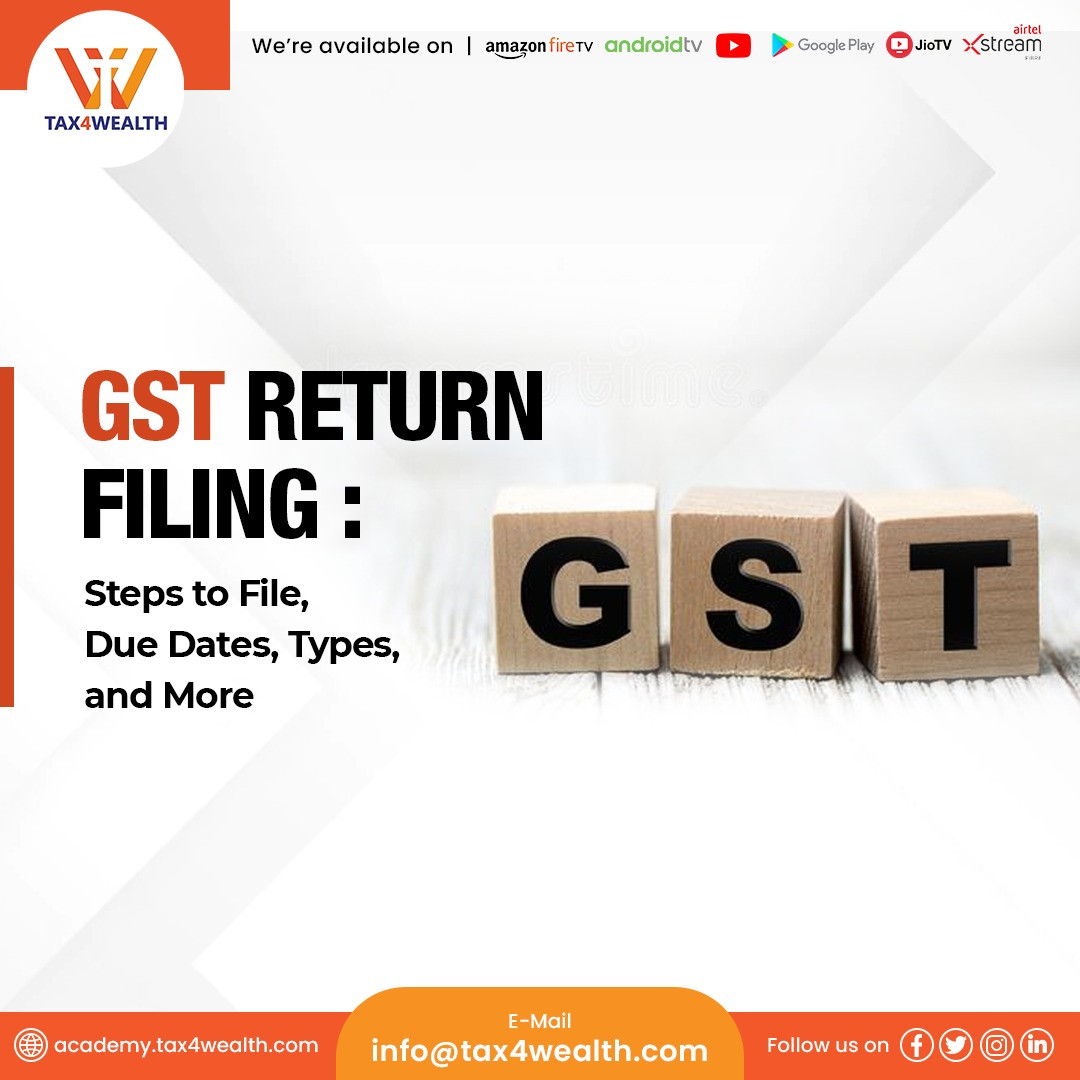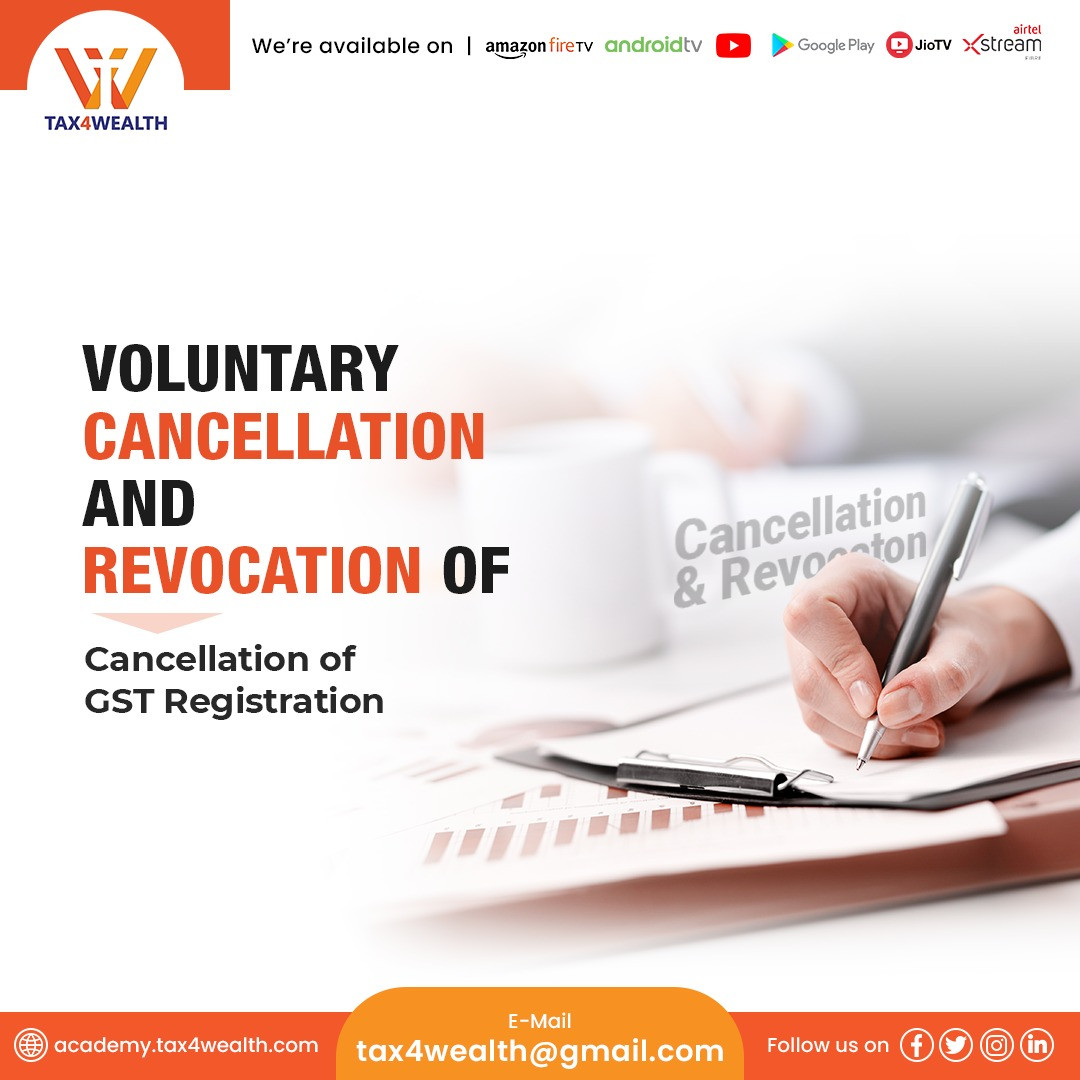
GST Return- How to File GST Return? Who should File, Due Dates, Types of GST Return
Beginning in the year 2000, India's Goods and Services Tax (GST) journey took 17 years to develop into a fully-fledged GST statute that went into effect on July 1, 2017. The introduction of GST has broadened India's tax base and eliminated the cascading impact of tax on the sale of goods and services.
While it is simpler for companies to comprehend the benefits of the GST law in India, many of them frequently encounter difficulties when completing GST returns. Because there are many GST returns that taxpayers must submit depending on the sort of business they operate, this is the case.
In this article, we'll go into detail on several GST return filing-related topics, such as the numerous forms available, the GST filing process, and more. Let's begin with the fundamentals like How to File GST Return? Learn more about the many forms of GST returns, who needs to file them, the process step-by-step, the deadline, how to download, etc.
What is a GST return?
A GST return is a tax form that must be filed with the government by GST-registered taxpayers and includes information about their income, sales, and related purchases and costs. This return is used by the tax authorities to calculate their net tax liability.
A GST-registered dealer must understand the requirements for accurately completing GST returns, which generally include:
✔ Sales
✔ Purchases
✔ Output GST on sales
✔ Input Tax Credit, and more (tax paid on purchases)
In addition, regulations regarding the filing of GST returns apply to seven different categories of taxpayers, including:
✔ Composition of taxable people
✔ Typical taxpayers
✔ Taxpayers who are not locals
✔ Deductors of TDS
✔ An occasional taxpayer
✔ Input service provider
✔ Online merchants
You should also be aware that GST returns must be filed on a monthly, quarterly, or yearly basis.
Steps to GST Return Filing Process:
By completing the nine-step procedure outlined below, an individual can submit a GST return online:
✅ Make sure that you or your company is registered for GST and that you have the 15-digit GSTIN, which is based on your PAN and state code, on hand. Before filing your GST return, if you don't already have a GSTIN, register for one.
✅ Click "Services" on the GST portal's home page.
✅ Select the financial year and return filing period from the drop-down box after clicking on the "returns dashboard."
✅ Click "Prepare Online" after selecting the return you wish to file.
✅ Enter the needed information, including the sum (along with the late fee if applicable)
✅ Save the information you've entered, and then press the "Submit" button at the bottom of the page to file your GST return.
✅ Following the change in the GST return filing status to "Submitted," scroll down and choose "Payment of Tax."
✅ Before you pay tax for each head, click "Check Balance" to view your cash and credit balances. After that, click "Offset Liability" to complete the online payment.
✅ Before pressing "File Form with DSC" or "File Form with EVC," check the box next to the declaration and select an authorized signature from the list. Finally, send in your relevant GST return payment.
Who needs to submit GST returns?
Businesses and individuals who have not opted for the QRMP (Quarterly Return Filing and Monthly Payment of Taxes) plan must file 25 returns annually under the GST system if their combined yearly revenue is Rs. 5 crores or higher. These comprise a yearly return as well as two monthly returns.
The QRMP program, on the other hand, gives taxpayers with a turnover of less than Rs. 5 crores the opportunity to file GST returns. Nine GST returns must be filed annually under this program. Although they submit their GST returns every three months, taxpayers who are participating in this program must pay their taxes every month.
Penalty for filing GST filings late:
A taxpayer will be required to pay a late charge and interest if the GST return is not filed within the allotted time frame. The outstanding tax balance is subject to interest at the rate of 18% annually in this case. Additionally, there is a Rs. 100 late fee for CGST and SGST, for a total of Rs. 200 each day.
Different GST return types:
There are a total of 22 different types of GST returns; 11 of them are current, 8 are for view-only, and 3 are suspended. To know how to file GST returns online, the taxpayer must first choose the appropriate type based on the GST registration that is being completed.
Brief descriptions of the various GST return form types may be found in the table below:
|
GST Return Form |
About |
GST Return Filing Frequency |
|
GSTR-1 |
Covers details of the outward supplies of taxable goods/services |
1. Monthly 2. Quarterly (under the QRMP scheme) |
|
GSTR-2A (View only) |
Covers details of purchases made (inward supplies) in a specific month |
NA |
|
GSTR-2B (View only) |
Contains ITC (Input Tax Credit) data for a particular return period |
NA |
|
GSTR-3B |
Contains a summary of the outgoing supplies, the ITC claimed, and the tax paid. |
1. Monthly 2. Quarterly (under the QRMP scheme) |
|
CMP-08 |
Refers to the statement-cum-challan used for making a tax payment by taxpayers registered under the composition scheme (section 10 of the CGST Act) |
Quarterly |
|
GSTR-4 |
The annual return that taxable persons are required to submit under the composition scheme. |
Annual |
|
GSTR-5 |
GST returns to be filed by a non-resident foreign taxable person |
Monthly |
|
GSTR-5A |
A list of the outgoing taxable supplies and the tax that OIDAR service providers must pay |
Monthly |
|
GSTR-6 |
Input Service Distributor (ISD) returns must be filed to give qualified ITCs to their branches. |
Monthly |
|
GSTR-7 |
GSTR returns are to be filed by registered individuals deducting TDS |
Monthly
|
|
GSTR-8 |
The e-commerce operators had to file a return form under the GST system |
Monthly |
|
GSTR-9 |
Annual return to be filed by a regular taxpayer |
Annually |
|
GSTR-9C |
All taxpayers registered under the GST system and having a yearly revenue of more than Rs. 2 crores must file a self-certified statement. |
Annually |
|
GSTR-10 |
Return to be filed by a taxpayer whose GST registration was either canceled or surrendered |
Once, at the time of cancelation or surrender of GST registration |
|
GSTR-11 |
Details of inward supplies to be furnished by an individual having a UIN to claim a refund |
Monthly |
How do I download the GST returns form?
The methods for downloading forms to file a GST return are listed below:
✅ Go to the GST website.
✅ Select Service => Returns => Return dashboard.
✅ After choosing the month or year, click "Prepare Offline."
✅ Select "Download" from the menu, and then create a file.
✅ Download the needed return form from the ZIP file.
How to verify the status of filing a GST return?
The procedures listed below can be used to verify the status of your GST return filing online:
✅ Log on to https://www.gst.gov.in to access the GST portal.
✅ After entering your login information, select Service > Returns > Track Return Status.
✅ From the drop-down menu, choose "Status of Return".\
✅ To examine the status of the return, which might be TO BE FILED, FILED - VALID, FILED - INVALID, etc., click Search.
Deadlines for submitting your GST return
The GST return filing deadlines for various return form types are shown below:
|
GST Return Form |
Due Date |
|
GSTR-1 |
11th of the next month (monthly) / 13th of the month after every quarter |
|
GSTR-3B |
20th of the next month / 22nd or 24th of the next month succeeding the quarter |
|
GSTR-4 |
30th of the next month succeeding a financial year |
|
GSTR-5 |
20th of the next month |
|
GSTR-5A |
20th of the next month |
|
GSTR-6 |
13th of the next month |
|
GSTR-7 |
10th of the next month |
|
GSTR-8 |
10th of the next month |
|
GSTR-9 |
Dec 31st of the next financial year |
|
GSTR-9C |
Dec 31st of the next financial year |
|
GSTR-10 |
Within 3 months of the date of cancellation |
|
GSTR-11 |
28th of the month following the month for which a taxpayer files the statement |
FAQs-GST Return Filing:
Q.How can a GST return be filed online?
A. To submit GST returns online, many return forms must be filled out. You may also get assistance from a tax expert to comprehend the procedure and complete everything on time. For further information, read the above-mentioned instructions.
Q.Do I have to pay GST monthly?
A. All taxpayers, including those who have chosen the QRMP system, are required to pay GST each month. Small company owners who have an annual turnover of less than Rs. 1.5 crore (manufacturers/dealers) or Rs. 50 lakhs (service providers) may choose the composition plan under GST.
Q. Can I make changes to the GST return that was previously submitted?
A. There is no process for GST return revisions. The current month's return and interest, if any, should include all unreported invoices from the prior tax period.
Q. What is the consequence of failing to file GST returns?
A. The GST department will keep track of every non-filer. The relevant authorities will get a list of people who failed to file their GST returns on time for follow-up and enforcement action. In addition to this, the GST legislation mandates the implementation of late costs for both late and non-filers.
Q. Who doesn't have to submit the GSTR-1?
A. Non-resident taxpayers, Input Service Distributors, composition scheme taxpayers, and online merchants who deduct TCS are exempt from filing GSTR-1.
Q. Who needs to submit a nil GSTR-1?
A. If a taxpayer or dealer has no commercial activity (no sales) during a month or quarter, they are required to file a Nil GSTR-1.
For more information, Visit us at: https://academy.tax4wealth.com/
Related News
No comments yet, Be the first to comment.













